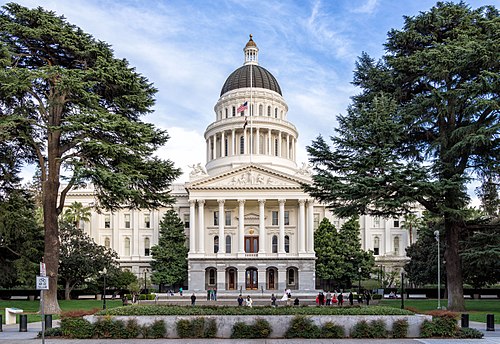
- Details
- By Native News Online Staff
The California Assembly Committee on Environmental Safety and Toxic Materials today approved AB 362, a bill that would require the State Water Resources Control Board and regional water boards to consider the impacts of proposed water projects on tribal communities. The measure, introduced by Assemblymember James C. Ramos (D-San Bernardino), also mandates that state and local water boards establish water quality standards that protect tribal water uses, where applicable.
“Under current law State and Regional Water Boards are not required to work with tribal communities even though the state’s First People have managed the land and its resources for centuries. Tribes are committed to the health and safety of delicate eco systems and a tradition of responsibility and stewardship. This long history and deep knowledge by our tribes deserves to be respected, and put to good use as we work to wisely manage our natural resources,” Ramos stated.
Malissa Tayaba, Vice Chairperson of the bill’s sponsor, the Shingle Springs Band of Miwok Indians, praised the committee’s decision. “We are grateful for Chair Damon Connolly and the committee members' leadership in advancing this bill,” she said. “Recognizing tribal beneficial uses of water alongside those already protected is long overdue. This legislation is a critical step toward ensuring tribal water uses are given equal weight.”
The State Water Board currently designates specific “beneficial uses” of water—including recreation, navigation, and wildlife protection—under the California Code of Regulations. AB 362 seeks to ensure that tribal uses are formally recognized and protected in the same manner.
The bill is supported by a wide coalition, including:
Audubon California, Blue Lake Rancheria Tribe of California, Buena Vista Rancheria of Me-Wuk Indians, California Environmental Voters, California Indian Environmental Alliance, California Nations Indian Gaming Association, Clean Water Action, Colfax Todds Valley Consolidated Tribe of the Colfax Rancheria, Defenders of Wildlife, Friends of the River, Hopland Band of Pomo Indians, La Jolla Band of Luiseño Indians, Restore the Delta, San Francisco Baykeeper, Santa Rosa Rancheria Tachi Yokut Tribe, Santa Ynez Band of Chumash Indians, Save California Salmon, Sierra Club, Sierra Consortium, Suscol Intertribal Council, The Climate Reality Project, California State Coalition, The Sierra Fund, Water Climate Trust, and Wilton Rancheria.
AB 362 now moves to the Assembly Appropriations Committee for further consideration.
More Stories Like This
A River Worth Defending: Chilkat Community Mobilizes Against MineU.S. Forest Service Approves Drilling at Pe’ Sla, Threatening Indigenous Land and Water
Gwich'in Tribal Governments Submit Comments Challenging Fish and Wildlife Service's Inadequate Environmental Review of Arctic Refuge Snow Road
Rappahannock Tribe Challenges 9M-Gallon Water Plan
Feds release draft long-term plans for Colorado River management
Help us defend tribal sovereignty.
At Native News Online, our mission is rooted in telling the stories that strengthen sovereignty and uplift Indigenous voices — not just at year’s end, but every single day.
Because of your generosity last year, we were able to keep our reporters on the ground in tribal communities, at national gatherings and in the halls of Congress — covering the issues that matter most to Indian Country: sovereignty, culture, education, health and economic opportunity.
That support sustained us through a tough year in 2025. Now, as we look to the year ahead, we need your help right now to ensure warrior journalism remains strong — reporting that defends tribal sovereignty, amplifies Native truth, and holds power accountable.
 The stakes couldn't be higher. Your support keeps Native voices heard, Native stories told and Native sovereignty defended.
The stakes couldn't be higher. Your support keeps Native voices heard, Native stories told and Native sovereignty defended.
Stand with Warrior Journalism today.
Levi Rickert (Potawatomi), Editor & Publisher


